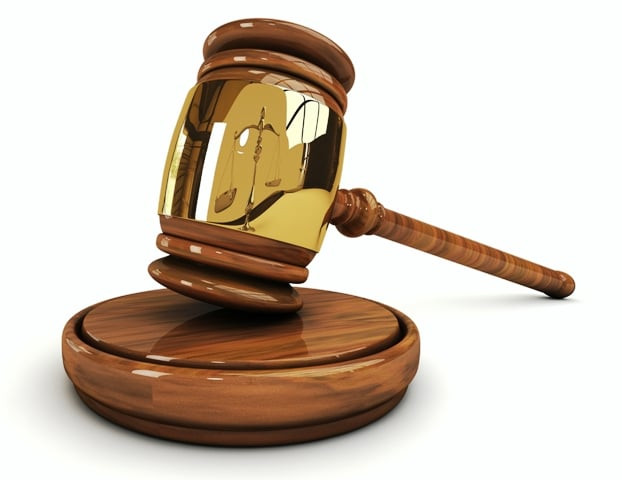Asghar Khan case: Don’t hold your breath awaiting prosecution
Current, retired FIA officers sceptical of trial of politicians that allegedly received money.

While many have hailed the verdict in the Asghar Khan case as a landmark judgment – having established that money was indeed given to politicians in the run-up to the 1990 polls, – whether those accused of receiving money will actually be prosecuted remains doubtful.
Five days have passed since the judgment, but the Federal Investigation Agency (FIA) and the government are yet to formulate a strategy or initiate investigations in compliance with the Supreme Court verdict, The Express Tribune has learnt. According to sources, the FIA has not even obtained relevant records from the Supreme Court.
For starters, two technicalities, according to a senior official of the FIA, seem to be getting in the way. First, the money allegedly received by politicians was technically in the form of donations, which means the national exchequer was not affected. Traditionally, the FIA probes cases concerned with public money. Secondly, the Supreme Court verdict states that sufficient evidence needs to be collected before initiating proceedings – which is a particular obstacle in this case.
Not fit for trial?
While an official of the FIA said the case did not fall under the ambit of the agency because no public money was involved, FIA Director (Law) Muhammad Azam Khan, while talking to The Express Tribune, said a probe would be conducted whether it fell in their purview or not because they were legally bound to act in compliance with the apex court’s orders.
That notwithstanding, another senior FIA officer said that, without sufficient evidence, the FIA cannot register a case. So far, no incriminating evidence has surfaced despite a lapse of 22 years, even during the SC’s hearings.
The lack of evidence has to do with ‘missing links’ – the people who actually allegedly distributed money to the accused politicians. Since the money was not directly distributed by Beg or Durrani, the identities of the ‘middle men’ along with their statements, as well as a money trail, must be available for the FIA to convert the inquiry into a criminal case.
Then, the expected denial of those who allegedly received the money also has to be taken into account. There would have to be sufficient evidence to disregard a denial and run a case on one party’s statements.
Likelihood of prosecution
Several serving and former FIA officials, including former FIA additional director-general Zafar Qureshi, expressed scepticism. Qureshi, who led the investigation into the multi-billion-rupee National Insurance Company Limited (NICL) scandal, said the precedent was weak.
Qureshi pointed to the acquittal of accused in the NICL case, including Chaudhry Moonis Elahi, in spite of tangible evidence, which includes a money trail and written statements from bankers, account holders, and other concerned people.
In the Asghar Khan case, no such evidence seems to exist.
Officers also pointed to investigations into the Steel Mills corruption case and the Hajj corruption case (investigated by FIA), and the Rental Power Projects case, the Oil and Gas Regulatory Authority (Ogra) scandal, the National Logistics Cell (NLC) scam and the Railways property lease scandal (investigated by NAB), saying that, despite a substantial amount of time passing, no major culprit has been arrested.
The guilty ones
The accused politicians’ case seems to be far off. The federal government is, in fact, yet to approach the relevant institution to take action against those actually identified and found guilty – i.e. then army chief Gen (retd) Aslam Beg, and then ISI chief Gen (retd) Asad Durrani – of distributing money.
Neither the army nor the National Accountability Bureau (NAB) has been approached to initiate legal action under the Pakistan Army Act (PAC) or the National Accountability Ordinance (NAO), sources said.
Published in The Express Tribune, October 24th, 2012.



1724319076-0/Untitled-design-(5)1724319076-0-208x130.webp)















COMMENTS
Comments are moderated and generally will be posted if they are on-topic and not abusive.
For more information, please see our Comments FAQ